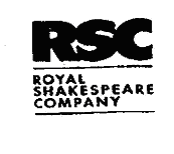Shakespeare-merken: voordeel uit prestige ouder merk
Gerecht EU 6 juli 2012, zaak T-60/10 (Jackson International Trading Company tegen OHIM/The Royal Shakespeare Company (ROYAL SHAKESPEARE) - perscommuniqué
 Gemeenschapsmerkenrecht. Ongerechtvaardigd voordeel trekken uit reputatie ouder merk.
Gemeenschapsmerkenrecht. Ongerechtvaardigd voordeel trekken uit reputatie ouder merk.
In de nietigheidsprocedure komt de houder van het woordmerk ROYAL SHAKESPEARE (klasse 32, 33 & 42) de houder van het oudere gemeenschapswoordmerk RSC-ROYAL SHAKESPEARE COMPANY (klasse 41) en aanverwanten merken tegen. De nietigheidsafdeling wijst de vordering tot nietigverklaring af, de beslissing van de nietigheidsafdeling wordt door de Kamer van Beroep vernietigd. Daarmee is er sprake van de nietigverklaring van het ingeschreven gemeenschapsmerk. Het middel dat ten overstaan van het Gerecht wordt gevoerd door Jackson International Trading Company: Er is geen associatiegevaar en Jackson trekt geen ongerechtvaardigd voordeel trekken uit de reputatie en het onderscheidend vermogen van het oudere merk RSC-ROYAL SHAKESPEARE COMPANY.
Het Gerecht oordeelt dat het betwiste merk visueel, fonetisch en begripsmatig overeenstemt met het oudere merk van the Royal Shakespeare Company. De gemiddelde consument zal de merken met elkaar associëren. Het nieuwere merk bestaat namelijk exclusief uit het centrale onderscheidende element 'royal shakespeare'. Het Gerecht stelt vast dat het oudere merk (RSC-ROYAL SHAKESPEARE) een 'uitzonderlijke' reputatie in de EU heeft met betrekking tot theaterproducties. Het Gerecht oordeelt dat door het nieuwe merk ongerechtvaardigd voordeel wordt getrokken uit de reputatie en het onderscheidend vermogen van het oudere merk van the Royal Shakespeare Company. Aanvrager van het merk ROYAL SHAKESPEARE zal voordeel halen uit de aantrekkingskracht, reputatie en het prestige van het oudere merk voor haar eigen producten: bier en andere dranken.
Het Gerecht EU wijst de klacht af.
Gelijkheid en associatiegevaar.
28 In the present case, the earlier mark with a reputation is made up of the words ‘royal shakespeare company’ and the contested trade mark of the words ‘royal shakespeare’. There is a partial identity between the signs at issue as they share the expression ‘royal shakespeare’, the contested trade mark being made up of those two words, which are contained in the earlier trade mark. The signs at issue share that expression as a common element. That common element, ‘royal shakespeare’, is the most distinctive part of the earlier trade mark. The group of letters ‘rsc’ is understood as a simple abbreviation of the words ‘royal shakespeare company’, and the word ‘company’ as a simple reference to the fact that a company is involved. Neither the combination of the three letters ‘rsc’ nor the word ‘company’ has a strong distinctive character. The word ‘royal’ is an adjective, which may refer to something ‘royal’, or even a laudatory adjective, which refers, as in the present case, to royal patronage. The surname of the famous English poet, playwright and writer William Shakespeare is well known and, as such, in and of itself, is not highly distinctive for theatre productions. Although the words ‘royal’ and ‘shakespeare’ are not highly distinctive when considered in isolation, their combination creates a distinctive sign. The central and most distinctive element of the earlier trade mark is thus the expression ‘royal shakespeare’, which is reproduced verbatim by the contested trade mark, with no additions or differentiation.29 As the contested trade mark is exclusively made up of the central and distinctive element of the earlier trade mark, namely the expression ‘royal shakespeare’, the signs at issue are visually, phonetically and conceptually similar. Therefore, the average consumer will establish a link between those signs.
Reputatie oudere merk
36 For the sake of completeness, the Court also draws attention to the fact that, as was discussed with the parties during the hearing, it is common ground that, as is the case for a number of theatre productions in general, the intervener’s theatre productions are also broadcast via television and radio. The Court notes that those media also address the public at large.
Onrechtmatig voordeel trekken uit de reputatie van het oudere merk
61 In the present case, the applicant would benefit from the power of attraction, the reputation and the prestige of the earlier trade mark for its own goods, such as beer and other beverages, and for its services. In the beverages market, those goods would attract the consumer’s attention thanks to the association with the intervener and its earlier trade mark, which would give the applicant a commercial advantage over its competitors’ goods. That economic advantage would consist of exploiting the effort expended by the intervener in order to establish the reputation and the image of its earlier trade mark, without paying any compensation in exchange. That equates to an unfair advantage taken by the applicant of the repute of the earlier trade mark within the meaning of Article 8(5) of Regulation No 207/2009.62 It follows from the considerations listed above that there is a likelihood of association between the signs at issue by reason of the earlier trade mark’s reputation.
63 It must therefore be concluded that the Board of Appeal was right to consider that there is a strong likelihood that the use of the contested trade mark would take unfair advantage of the earlier trade mark’s reputation.
Op andere blogs:
Alicante News (B. General Court, case T-60/10)
IPKat (Shakespeare not for snobs; ROYAL SHAKESPEARE not for Austrians, rules Court)



























